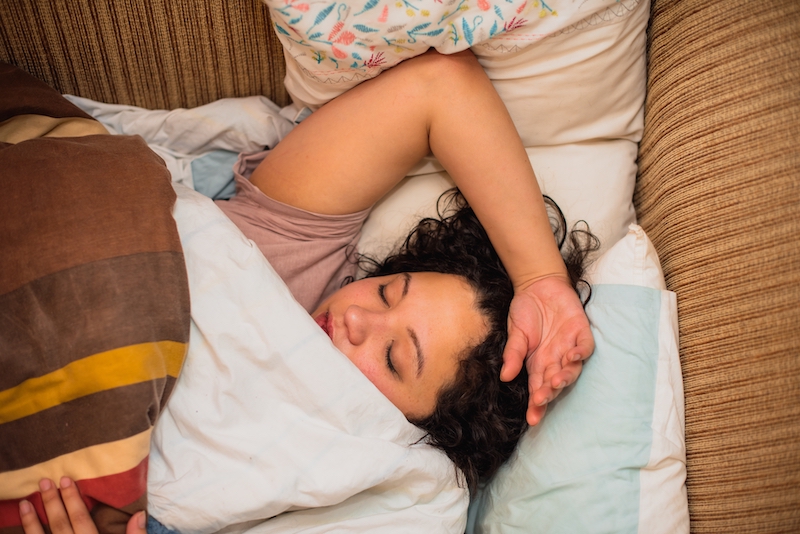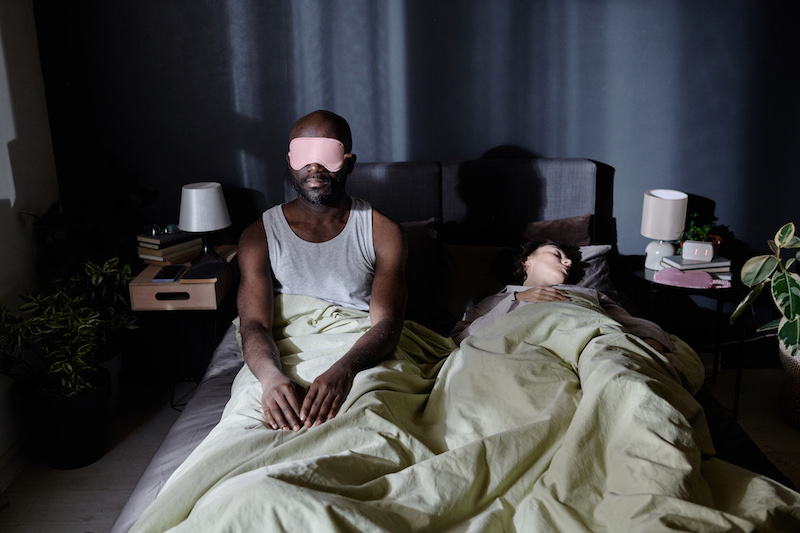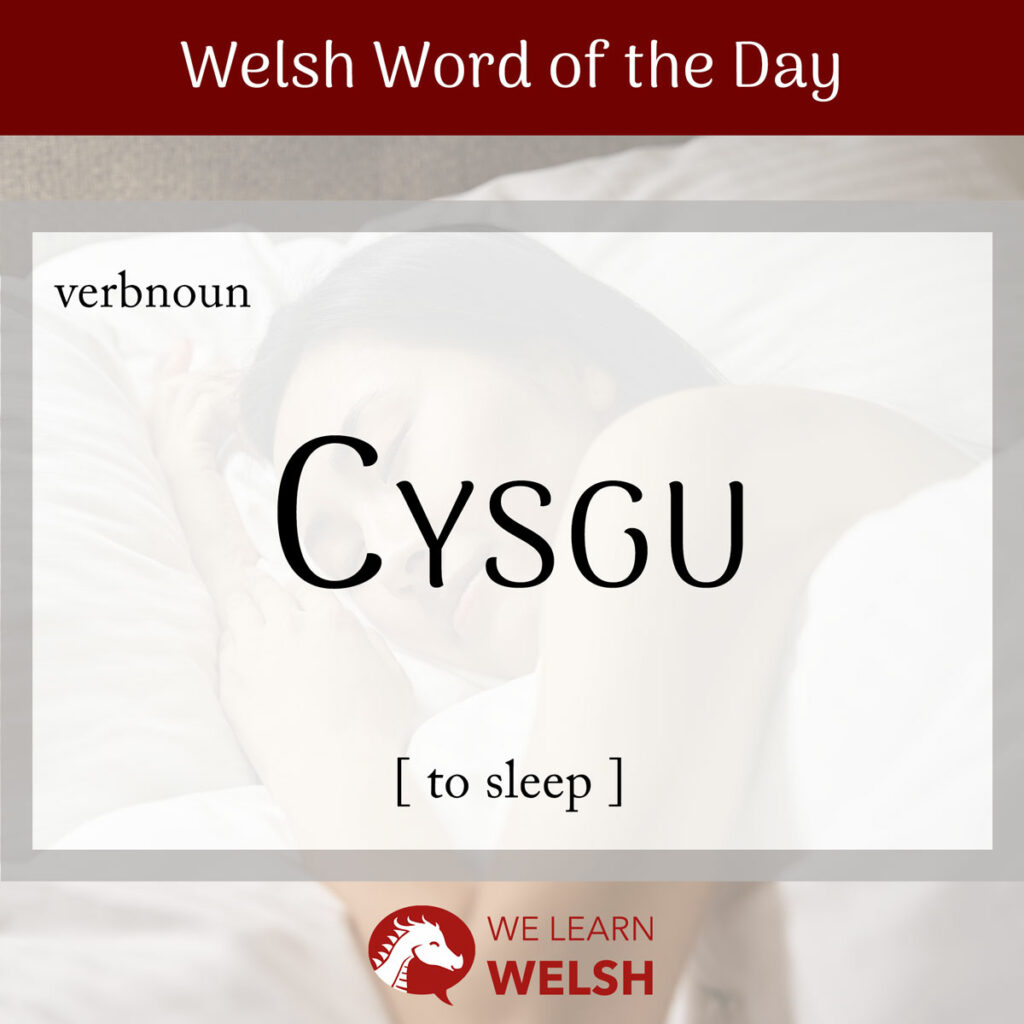I always say I wish I had more time in the day to get all my housework done, or to have time to focus on hobbies… but realistically, if you gave me a few extra hours, I’d probably just use it for cysgu (sleeping).
cysgu
to sleep
Cysgu is the verb form of the noun cwsg, which is the equivalent of the noun sleep in English. This word is similar to the Cornish cusca and the Breton kousket, whereas the Manx and Irish Gaelic codladh is a bit different, suggesting that this word branched off around the time that Proto-Celtic became Proto-Brittonic.
Here is how cysgu mutates:
Soft mutation
gysgu
Nasal mutation
nghysgu
Aspirate mutation
chysgu
Generally we encounter mutated forms of verbs less often than mutated forms of nouns. The nasal mutation nghysgu, for example, would never actually be used in Welsh. This is because the nasal mutation only applies after yn when it is used to mean in, after some numbers, and after fy (my). But the root form cwsg could theoretically appear as fy nghwsg (my sleep).
There is an older, literary synonym of cysgu, which is huno. Huno is not used anymore outside of poetry, but it does survive in some words, such as hunllef (nightmare) or dihuno (to wake up). Dihuno is standard in the South, whereas deffro is more common in the North.
Another example is anhunedd, a formal word for insomnia, though it is probably more common to simply say diffyg cwsg (sleep difficulty). Anhunwyr (insomniacs) are very unlucky to remain di–gwsg (sleepless), as cysgu digon (sleeping enough) is one of the most important things we can do for our health.
Ydych chi’n cysgu digon?
Do you sleep enough?

Huno also continues to be relevant in that it is sometimes used as a euphemism for marw (to die), in the same way that to pass away is used in English.
Let’s talk a bit about how to actually use cysgu in conversation. It will most often come up in its infinitive verb-noun form, in phrases like Rwyt ti angen cysgu (You need to sleep) and Dw i’n cysgu llawer (I sleep a lot). But some of the most useful conjugated forms are provided below.
| Future | Conditional | Past | |
| First person singular | Cysga(f) i I will sleep | Cysgwn i I would sleep | Cysgais i I slept |
| First person plural | Cysgwn ni We will sleep | Cysgen ni We would sleep | Cysgon ni We slept |
| Second person singular / informal | Cysgi di You will sleep | Cysget ti You would sleep | Cysgaist ti You slept |
| Second person plural / formal | Cysgwch chi You will sleep | Cysgech chi You would sleep | Cysgoch chi You slept |
| Third person singular | Cysgith / cysgiff o/e/hi He/she will sleep | Cysgai fo/fe/hi He/she would sleep | Cysgodd o/e/hi He/she slept |
| Third person plural | Cysgan nhw They will sleep | Cysgen nhw They would sleep | Cysgon nhw They slept |
In order to talk more about cysgu, it is useful to know some related vocabulary:
- wedi blino = tired
- cysglyd = sleepy
- ynghwsg = asleep
- mynd i gysgu / syrthio i gysgu = to fall asleep
- hala i gysgu = to send to sleep
- gwely = bed
- breuddwyd = dream
- chwyrnu = to snore
- cysga’n dawel! = sleep tight! (literally sleep quietly!)
Cysgu bei is sometimes used with small children and babies as an equivalent of the English beddy-byes.
The Welsh also have an impressive array of lullabies, with the most iconic being Heno Heno (Tonight Tonight), a very sweet but mostly nonsensical song used to sïo i gysgu (lull to sleep) the hen blant bach (little old children) that it addresses in its lyrics.
Newborn babies are the luckiest when it comes to sleep, typically racking up around sixteen oriau (hours) in each diwrnod (day / 24-hour period). In contrast, the average adult only needs seven to nine hours a nos (night), and many of us get even less. But did you know that some people have a genyn (gene) that allows them to naturally cysgu for only around five hours without experiencing the effects of amddifadedd cwsg (sleep deprivation)?
Alla i ddim cysgu ar fatres wael.
I can’t sleep on a bad mattress.
The rest of us have to be very careful to make sure we get enough – long-term amddifadedd cwsg is associated with serious health conditions like heart disease and dementia. Luckily, we don’t need to get as much sleep as some anifeiliaid (animals) like squirrels, bears, and hedgehogs, which spend the winter months gaeafgysgu (hibernating).
Daytime siestas are also good for our iechyd (health). Cael cyntun (napping) can improve memory and alertness for the rest of the day, in people of all ages. One old Welsh way of referring to a catnap is cysgu ci bwtsiwr (sleeping like a butcher’s dog), and you may also come across the verbs hepian and pendwmpian (to nap).
Here are some more fun Welsh idioms you can use to talk about sleep:
- cysgu fel clawdd = to sleep like a log (literally, sleeping like a hedge)
- cysgu llwynog = pretending to sleep (literally, fox sleeping)
- cysgu yn llety’r falwen / aderyn = to sleep outside e.g. in a hedge (literally, to sleep in the snail’s / bird’s lodgings)
- chysgais i ‘run winciad = I didn’t sleep a wink
- cysgu fel mochyn / twrch = to sleep heavily (literally, to sleep like a hog)
A more literal translation of to sleep heavily or to sleep soundly would be cysgu’n drwm or cysgu’n sownd.
Mae’r baban yn cysgu’n sownd.
The baby is sleeping soundly.
There are lots of things we can do to improve our hylendid cwsg (sleep hygiene) and make sure we don’t too often colli cwsg (lose sleep). It’s important to keep sleep times as cyson (regular / consistent) as possible, try to avoid bwyta (eating) or yfed (drinking) in the last hour before amser gwely (bedtime), and minimise time spent using sgriniau (screens).
Many people also drink te camomil / te camri (chamomile tea), or take meddyginiaeth (medication). Meddyginiaeth is a pretty formal term – colloquially it’s usually moddion in the South or ffisig in the North.
Do you have any special routines or habits to help you cysgu (sleep)? Bonus points if you can answer yn y Gymraeg (in Welsh)!


